A Lovely Chaos
- Gina Greenlee, Author

- Jun 22, 2025
- 5 min read
Updated: Jul 3, 2025

“What is universal is the human propensity to create order out of chaos.” Anthony Storr, Music and the Mind
I ran from chaos at first. The kind I grew up in. Mom seething. Dad retreating into the bedroom with his books. Me becoming Dad’s surrogate emotional partner. Mom ignored me except when she demanded I clean the house day after day after school. Then clean it again because I hadn’t done it right.
To survive the abuse and neglect by one parent, the capricious cold reserve of the other and their fraught union, my formative years were a constant state of strategizing how to survive each day. Being proactive was a survival imperative for sidestepping explosives in the family minefield. I had to be ready for anything.
The woman who gave birth to me said everything wrong in that house was my fault.
Dad said, No.
He left anyway.
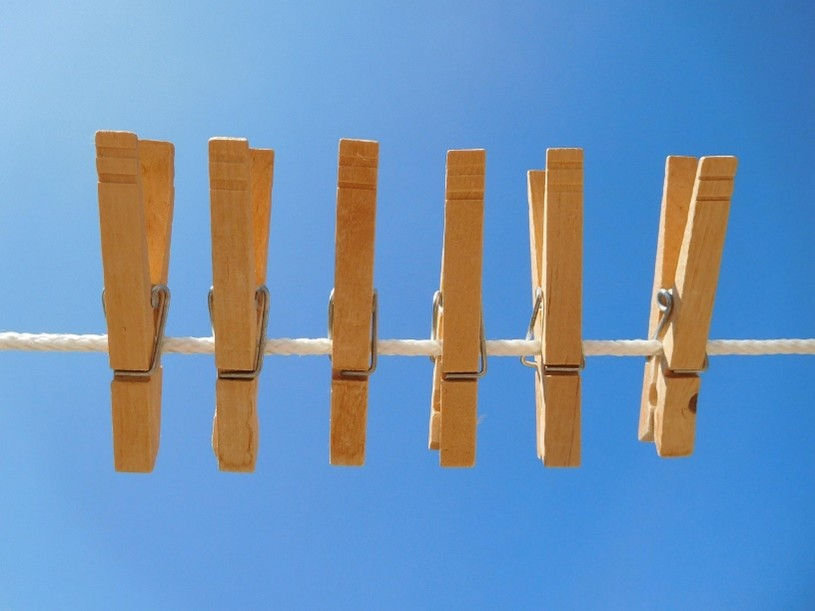
Familiar
I functioned well as an adult. On the surface. Chaos still followed: sleepless nights; anxiety masquerading as chest pain; brick walling men who loved me; incurring shopping debt instead of paying the mortgage. Arriving nowhere on time, always with excuse. Sugar binges that landed me in the emergency room. Driving in the glow of a steady gas light. My therapist: “You create chaos because it’s familiar.”
Then one day life stopped working because the chaos stopped working.
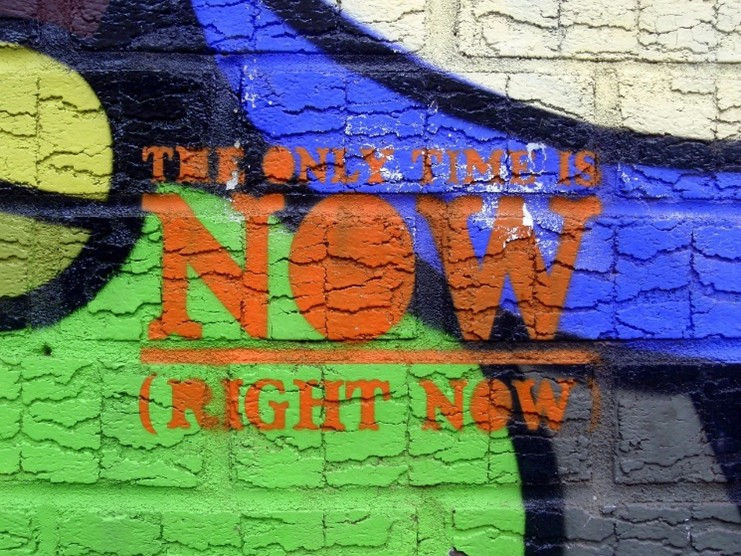
Now What?
I took the pills. Finally. My brain stopped looping. Oh, that’s what it’s supposed to sound like in there. Quiet.
How did I manage to finish college, work, have relationships, write, with all the noise inside my head? Who was I now, absent the job of managing brain clutter? I felt like the woman who works a job for 40 years, retires and doesn’t know what to do with herself.
Thoughts now in order, what would life be like if my external world were ordered, too? What if I washed the tower of dishes in the sink, and the piles of laundry that overran my apartment? Organized my art supplies? Just throw shit out.
That’s done. Now what?
All this room inside my head. The void was terrifying. What am I going to DO? Therapist: “Your job is to heal.” I returned her comment with a blank stare and thought, what does that even mean?
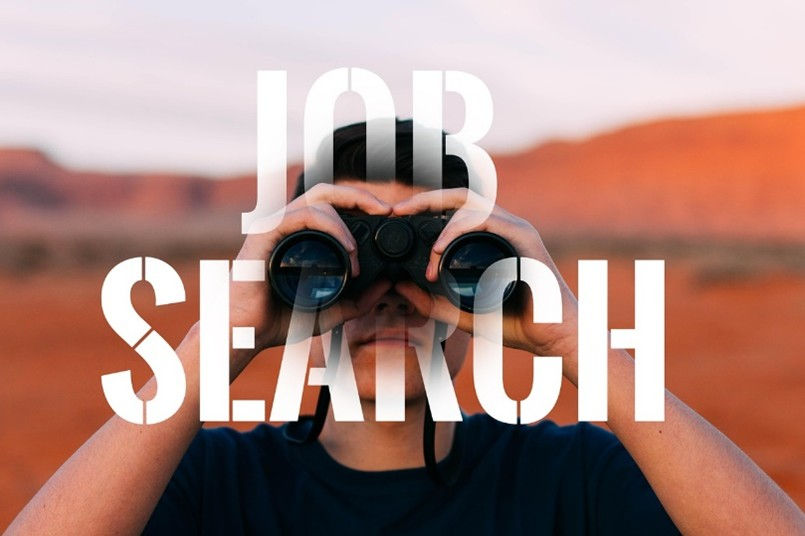
Healing Is a Job
What does that look like? Maybe, anything I want. What do I want? I didn’t have to work for a while. A few years earlier, I inherited money after my father’s death, for which I felt deep gratitude. That money gave me the time I needed to simply get up every morning and see what happens. What happened was that I wanted to walk a long time in the sun.
I relocated to the U.S. sunbelt and sat on the beach for hours. All day, sometimes. I brought with me books and sketchpads, but they never left my tote. Hypnotized by the tranquil Gulf of Mexico, I didn’t want to do much of anything. And for the first time in my life, I thought that was fine.
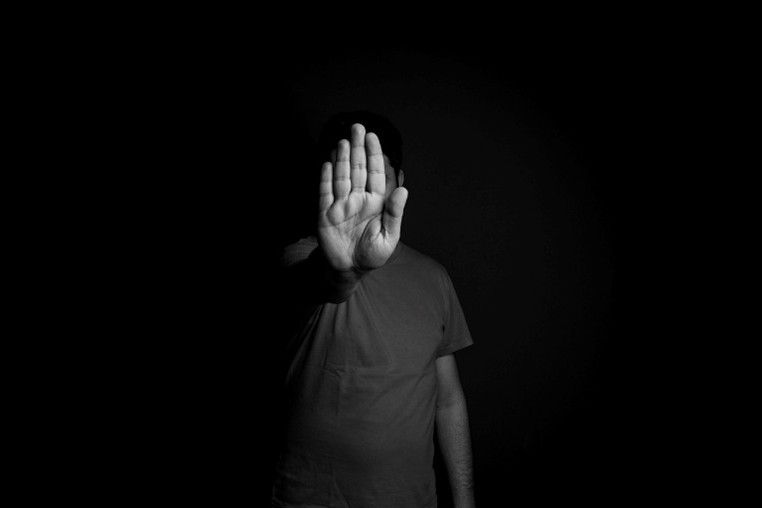
What Happens If I Do Nothing?
The question repeatedly popped into my head. Because I didn’t have to work a job, I realized that being was a new way of doing. A question formed. What if I allowed myself to be?
I rested for two years: napped daily; slept whenever I wanted, sometimes to the middle of the afternoon. One time, I drifted asleep on a public park bench, so easy now to rest. During this period of being-not-doing, air whooshed through my prefrontal cortex, and I remembered I like to draw. And paint. Mash silly putty. Doodle. Cut up magazines and paste them together in unusual ways.
I visited the art store. Roamed the aisles at random for weeks and months, not to look for anything in particular. In three years, I cultivated an art studio. Goodies everywhere. Paper, paint, glue, pastels, crayons and canvas. The clutter had returned in new form. And with it I made a life-changing discovery: not all chaos is created equal.
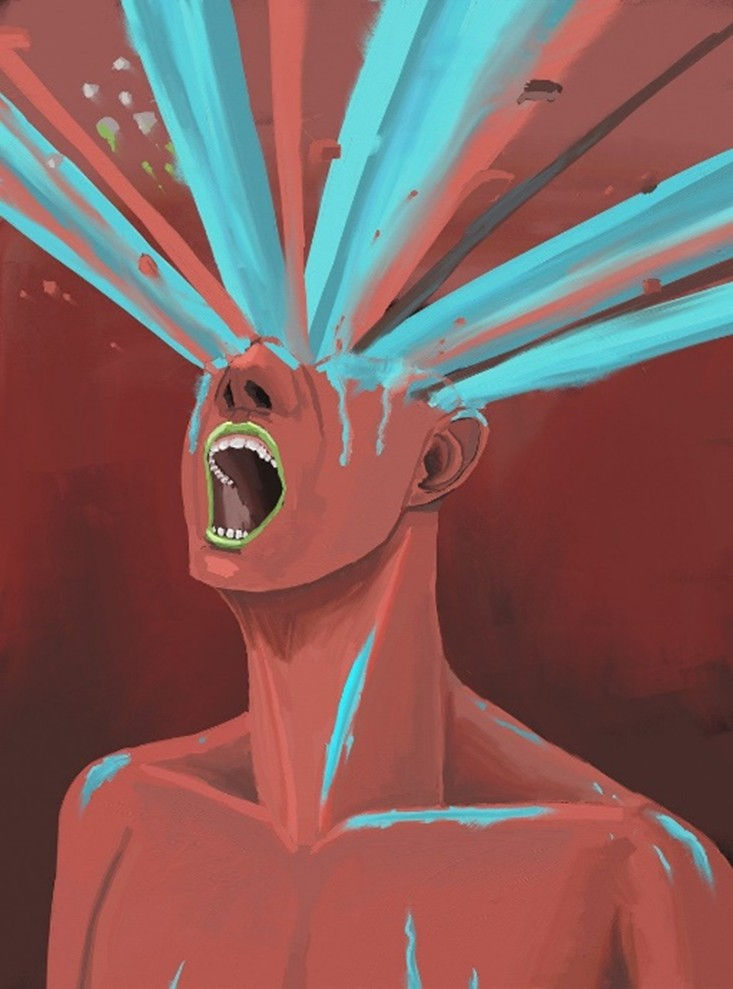
Chaos as Power
The organic discovery from art materials strewn every which way invited new ideas. The tornado of items that typically don’t belong together prompted me to ask, what if I glued, nailed or tied this to that? What would happen if I ink-stamped a moon face I bought at the art store onto this circular I received in the mail? I began to understand that chaos is a tool. My head void of childhood-driven, self-inflicted crises, chaos surfaced as power. I could harness this type of chaos to advance the quality of my life.
The feeling was exhilarating.
And I couldn’t stop.
Was this newfound artistic energy too much?
Was I going nuts?
I worried this was another one of my obsessions that would exhaust me financially from indiscriminate spending, ensnare me psychologically with looping thoughts or burden me logistically with art supplies overrunning my apartment. Was this newfound artistic energy too much? Was I going nuts?
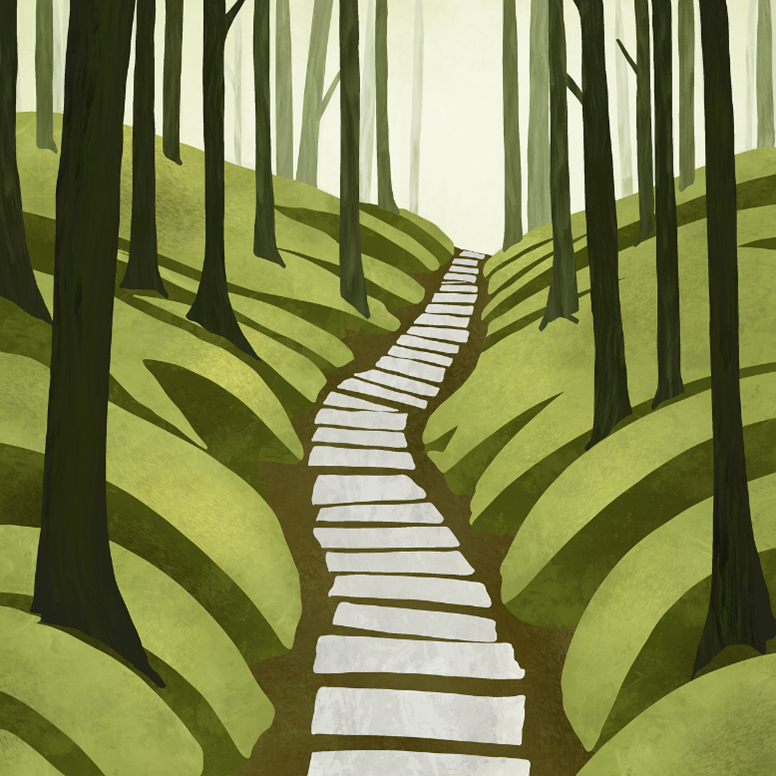
Freewill
Rob Brezsny’s July 28, 2022, Freewill Astrology for Capricorn:
Capricorn poet Richard Hugo wrote, “It doesn’t bother me that the word ‘stone’ appears more than 30 times in my third book, or that ‘wind’ and ‘gray’ appear over and over in my poems to the disdain of some reviewers.”
Hugo celebrated his obsessions. He treated them as riches because focusing on them enabled him to identify his deepest feelings and discover who he really was. In accordance with astrological omens, I recommend a similar approach to you in the coming weeks. Cultivate and honor and love the specific fascinations at the core of your destiny.
Chaos is foundational to discovery, an engine for exploration.
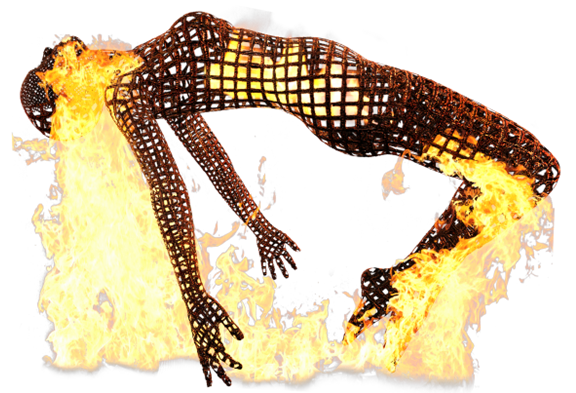
Rebrand
I began to study the neuroscience of creativity and productivity as my interest evolved from the personal to the collective. This led me to a book by Dr. Eric Maisel called The Van Gogh Blues. Rebranding chaos was already life-changing, and this book deepened that dynamic. It made the case for reframing obsessive passions, from dysfunction to empowered creative and mental health.
I call it, lovely chaos:
Subconsciously ordered.
An engine for exploration and play.
A call to experimentation.
A productive embrace of uncertainty.
Foundational to discovery.



